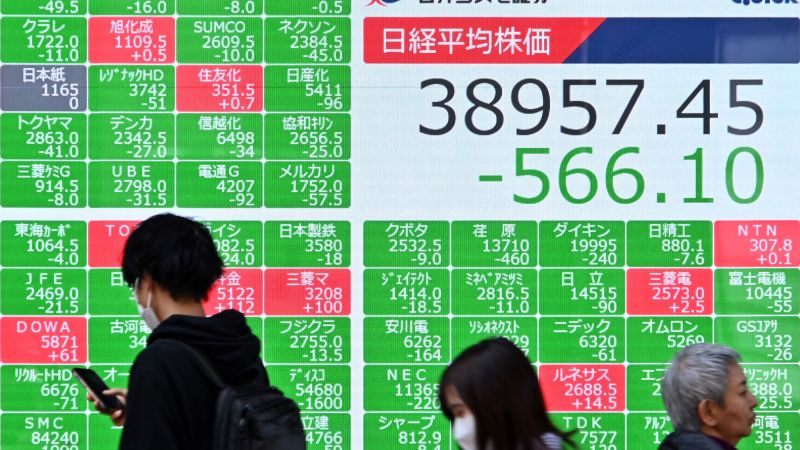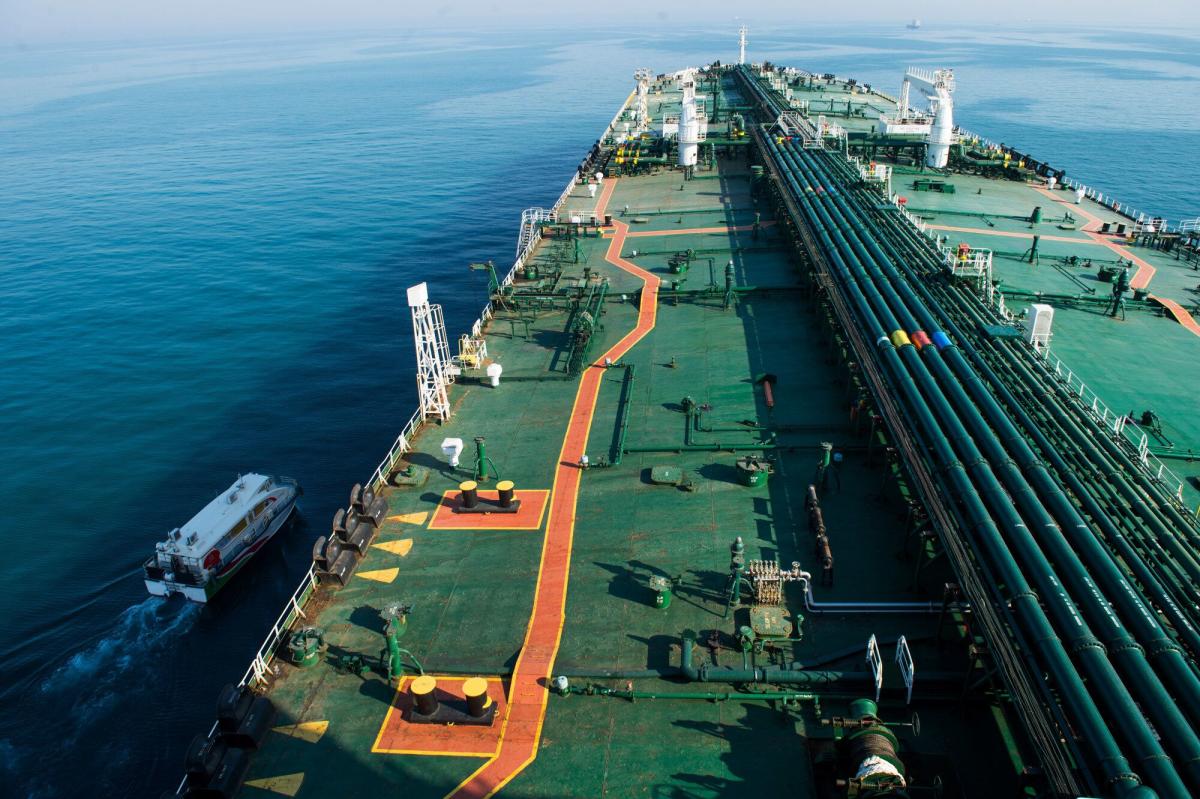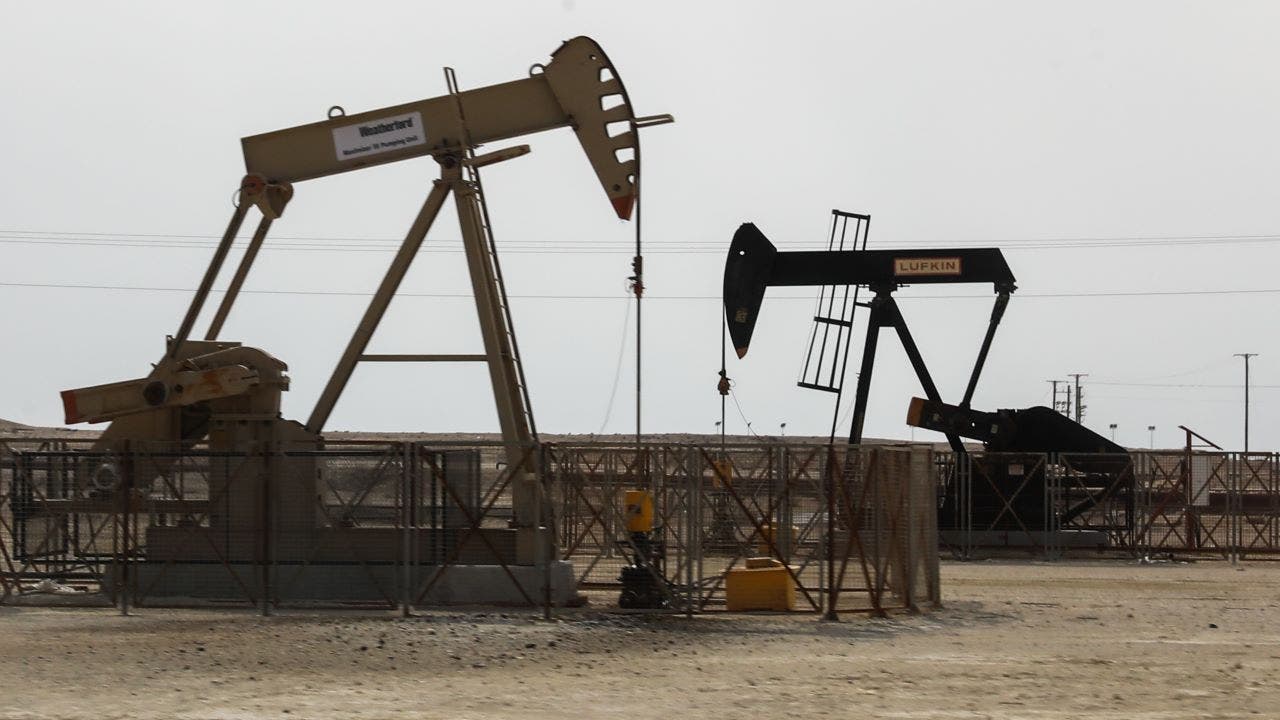
Gold prices increased while Asian stocks declined on Monday as Iran's attack on Israel heightened geopolitical tensions in the Middle East. Japan's Nikkei 225 and South Korea's Kospi dropped over 1%, while Hong Kong's Hang Seng Index fell by 0.8%. However, China's Shanghai Composite Index rose by 1.2%. Spot gold reached $2,358 per ounce, rising by 0.6% and hitting an all-time high of $2,431 per ounce on Friday. US gold futures also rose by 0.1%. Oil prices, although settling higher on Friday, slightly retreated during Asian trading hours after Iran's attack which caused minor damage.

(Bloomberg) -- Aluminum surged by a record on the London Metal Exchange as traders responded to new US and UK sanctions that banned deliveries of Russian supplies produced after midnight on Friday. Most Read from Bloomberg Israel Versus Iran What All-Out War Could Look Like Texas Warns of Possible Power Emergency Next Week Irans Missile Barrage Was an Error Israel Can Gain From Israel Grapples With New Phase in Its Multi-Front War With Iran Apples iPhone Shipments Drop 10% as Android Rivals Rise The restrictions on key industrial metals aimed at curbing President Vladimir Putins ability to fund his war machine are unlikely to stop Russian sales but inject significant uncertainty into commodities markets that have already been reshaped in the aftermath of Russias invasion of Ukraine. Aluminum jumped as much as 9.4%, the most since the current form of the contract was launched in 1987, while nickel rose as much as 8.8%, suggesting brokers are bracing for major supply chain disruption.

Asian shares mostly rose as investors anticipate earnings reports from top global companies and a U.S. consumer prices report as a gauge for inflation. The Nikkei 225 in Japan jumped 1.3%, Sydney's S&P/ASX 200 gained 0.3%, and South Korea's Kospi rose 0.3%. Wall Street ended with a rally following a strong U.S. jobs report, with the S&P 500 rising 1.1%. The U.S. government is set to release its March consumer prices report later in the week, influencing Treasury yields which climbed after the jobs report.

Global shares showed a mixed trend with France's CAC 40 and Germany's DAX edging up, while Britain's FTSE 100 slipped. U.S. shares were set to drift higher. In Asia, Japan's Nikkei 225 and Australia's S & P/ASX 200 fell, while South Korea's Kospi, Hong Kong's Hang Seng, and Shanghai Composite saw gains. Energy prices rose, influenced by global uncertainties like events in the Middle East and Russia. The U.N. Security Council demanded a cease-fire in Gaza, with the U.S. abstaining. Analysts are mindful of potential oil price flares due to geopolitical tensions.

Asian stocks saw increases before China's National People's Congress, with Japan's Nikkei surpassing 40,000 for the first time, driven by strong demand for AI technology and the Bank of Japan's credit policy. Meanwhile, U.S. futures declined, and oil prices were mixed. Chinese investors are anticipating policies to support the slowing economy and stabilize financial markets. In the U.S., the S&P 500 and Nasdaq reached all-time highs, with technology stocks leading. Dell Technologies reported better-than-expected earnings, reflecting the high demand for AI products. On the flip side, New York Community Bancorp faced a significant drop due to internal loan review weaknesses.

Cryptocurrency prices fell Saturday evening after Iran launched a wave of drones at Israel, marking an early indication of the turmoil that could hit markets as investors start to price in the threat of a broader Middle East war. Bitcoin was down 5% from its price on Friday, while ether sank more than 7%, and XRP tumbled 13.5%, according to CoinMarketCap . That's a sign risk assets will be under pressure. A fuller picture of Wall Street's reaction to Iran's first-ever, full-scale military assault on Israel will come on Sunday evening, when futures trading opens in the U.

Hong Kong stocks led gains in Asian markets while investors evaluated economic data from South Korea and Australia. China's Vanke saw a 11.4% slump after reporting a 50.6% decrease in 2023 core profit and no dividend payout. South Korea's Kospi edged higher as consumer prices rose 3.1% in March. Australia's S&P/ASX 200 showed minimal gains despite a contraction in the manufacturing sector index. On Wall Street, the S&P 500 dipped, Dow Jones fell, Nasdaq rose. Companies like FedEx and Trump Media & Technology Group experienced significant fluctuations in value.

Asian shares showed a mixed trend after Wall Street slightly declined from its record highs. Japan's Nikkei 225 index was observed at a securities firm in Tokyo. Additionally, Trump Media replaced Digital World on the Nasdaq stock exchange with its social media platform Truth Social.

Global shares mostly rose as France's CAC 40, Germany's DAX, Britain's FTSE 100, Japan's Nikkei 225, Sydney's S&P/ASX 200, and South Korea's Kospi all posted gains. Taiwan Semiconductor may see quicker relief after an earthquake. The US Federal Reserve may cut rates three times this year, pending evidence of inflation. Japan's labor union reports solid wage increases. Job market data from the US government is awaited.

Stock futures dipped following a strong jobs report as investors fear a delay in interest-rate cuts, with futures for the S&P 500 and Dow Jones slipping by 0.1%, while the Nasdaq 100 remained flat. The US Dollar Index rose 0.1% to 104.37 points, and the 10-year Treasury yield climbed to 4.45%. Asian shares rose as investors awaited earnings reports and the US consumer prices report. Japan's Nikkei 225 jumped 1.3%, Sydney's S&P/ASX 200 gained 0.3%, and South Korea's Kospi rose 0.3%. Concerns about inflation and energy prices continue amidst signs of economic recovery.

Stocks fell on Friday with the Nasdaq Composite sliding 1.3%, the S&P 500 shedding 1%, and the Dow Jones Industrial Average falling 0.9% or more than 300 points. Tech stocks, previously leading the rally, lost ground amid fears of inflation and worries about Federal Reserve policies. Big banks like BlackRock, JPMorgan, Wells Fargo, and Citigroup reported mixed results, with the financial sector underwhelming investors. Meanwhile, precious metals like gold and silver rallied to fresh highs as investors sought safety amidst Middle East tensions and inflation concerns.

Global shares mostly declined following Wall Street's worst day in weeks, with France's CAC 40 edging up 0.1%, Germany's DAX rising 0.3%, and Britain's FTSE 100 dropping 0.6%. US shares were set to drift lower, with Japan's Nikkei 225 sliding 0.8%, Sydney's S&P/ASX 200 slipping 1.3%, South Korea's Kospi dropping 1.4%, Hong Kong's Hang Seng losing 1.1%, and the Shanghai Composite falling 0.2%. Analysts express concerns over potential market corrections amid worries spreading from Wall Street to Asia, despite recent positive economic signals from China.

Chinese stocks gain as Beijing provides regulatory support; Asian markets mixed with tensions in the Middle East; Indian stock indices close unchanged with realty and banking stocks leading gains after RBI rate decision.









NY Post

Yahoo! News

NDTV

Fox News

https://www.facebook.com/bbcnews

Yahoo! News

Yahoo! News

Laura He

Al Jazeera

Sky News

PANORA

PANORA

PANORA

PANORA

PANORA

PANORA

PANORA

PANORA

PANORA

PANORA

PANORA

PANORA